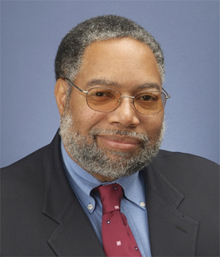Lonnie Bunch on his father's "gentlemanly defiance" of Jim Crow
CBS News asked noted figures in the arts, business and politics about their experience in today's civil rights movement, or about figures who inspired them in their activism.
Lonnie G. Bunch III, founding director, Smithsonian National Museum of African American History and Culture
Is there something that you'd like to share about your personal connection to civil rights issues?
We were on our way to visit my maternal grandparents in Woodland, N.C., a tiny farm community known for its tobacco and peanuts. The roads of the early 1960s were dark and monotonous. Going South from New Jersey was a trip to family and love, but the grownups knew for sure -- and even I as an eight-year-old knew vaguely -- there were always risks tied to traveling down South.
I was awake around 2 a.m. when my Dad got tired and needed a break. Still in southern Virginia, he pulled into the parking lot of one of those low-budget motor lodges. What I saw terrified me. My dad was standing under a sign that said "Whites only." At this point I had only heard about the horrors of American racism and the Jim Crow South. Timidly, I asked my Dad why he stopped and stood THERE of all places.
"Don't you know this is my America, too," he said, with gentlemanly defiance. His words were burned into my consciousness decades later as I studied, and put into a scholarly context, racism in this country.
After playing in the safe cocoon of my grandparent's farm, we headed back to New Jersey. Again the segregated South provided a lesson. My Dad got lost and we came to a fork in the road. From his higher vantage point behind the wheel, he looked ahead and saw men in white hoods and a cross burning. I only saw something lit in the distance. Without hesitation, Dad backed up his Thunderbird and drove off in the other direction. Very fast. He noticed I was shocked by the speed and said, quietly and simply: "When it comes to the Klan, you better move."
Those two moments of manhood and survival shaped my expectations of what America could be. The country is a long way from what my father experienced and expected. Those incidents helped me to investigate history, and the way black history is American history, in my personal fight against injustice. They taught me -- and my Dad -- the need to confront evil in any way possible and to never let the things that frighten us most keep us from dreaming of an America that is fair, and free.
For more info:
